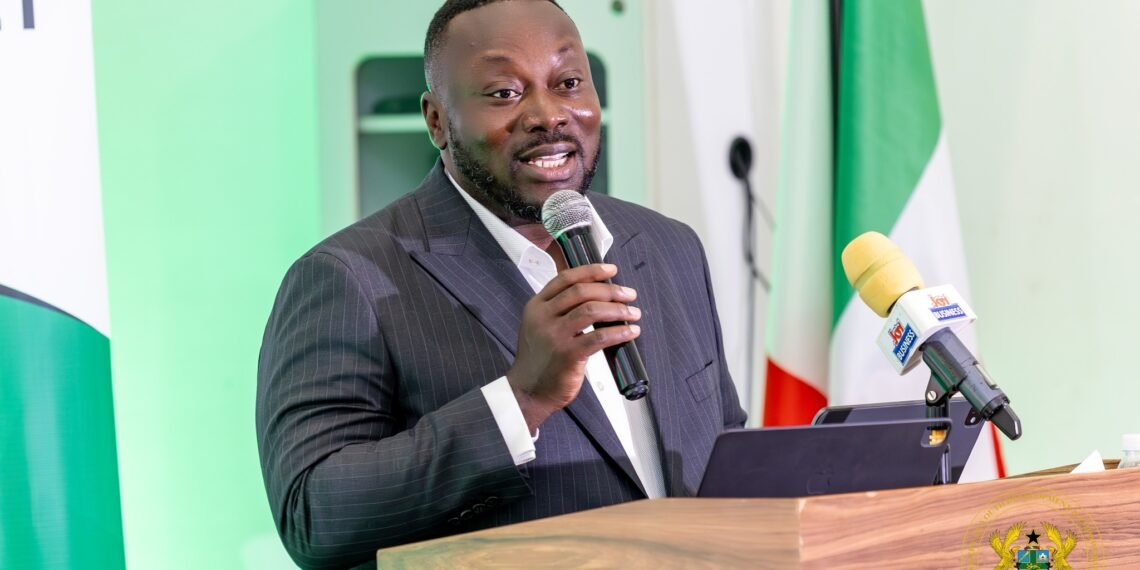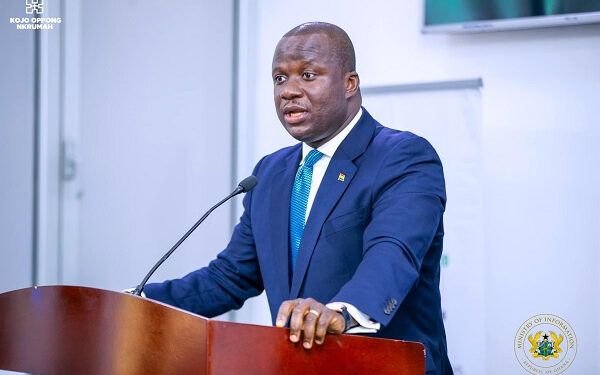The Ministry of Youth Development and Empowerment has announced the immediate suspension of the Central Management System (CMS) currently utilised by the National Service Authority (NSA) for its personnel postings.
This significant action, taken under a direct directive from the Office of the President, marks a pivotal moment in addressing the long-standing “ghost names” scandal that has plagued the National Service Authority, formerly the National Service Scheme (NSS), for years, costing the nation substantial public funds.
“Following the directive from the Office of the President, the use of the CMS has been suspended with immediate effect. This decisive step has been taken in the national interest to allow for a comprehensive technical and forensic review of the platform.”
Hon. George Opare Addo, Minister of Youth Development and Empowement
The Ministry assured the general public, especially National Service Personnel and stakeholders, that, measures are being put in place to ensure that the operations of the Authority are not disrupted.
To this end, the Ministry noted that “alternative systems and verification procedures are being reviewed to maintain smooth and transparent service delivery.”

This commitment aims to prevent any undue hardship or uncertainty for legitimate service personnel while the comprehensive review is underway.
The Ministry’s press release concluded with a call for calm and cooperation, urging all National Service Persons and the general public to remain calm and cooperative with the relevant institutions to undertake the necessary actions to safeguard the integrity of the National Service Authority.
This emphasises the collaborative effort required from all stakeholders to successfully navigate this period of transition and reform. Further updates are expected to be communicated in due course, as the technical and forensic review progresses.
NSA’s Ghost Scandal
In recent times, the NSA has been embroiled in controversy due to the fraudulent enrollment of thousands of non-existent personnel, leading to a presidential directive for inquiry and prosecution.
This suspension directly responds to persistent calls for a thorough investigation into the vulnerabilities of the system that allowed such widespread malpractice to flourish.
At the forefront of the scrutiny and advocacy for reform has been Sulemana Braimah, the Executive Director for the Media Foundation for West Africa (MFWA). Mr Braimah has consistently rejected attempts to solely blame individual NSS staff for the fraudulent enrollments.
He posited, instead, that the fundamental problem lies with inherent flaws in the digital platform, often dubbed the “Metric App,” and the operational contract underpinning its use.
His detailed analyses highlighted the sophisticated nature of the alleged systemic failures that enabled the “ghost names” phenomenon.
Mr Braimah’s criticism was particularly pointed towards those, including the current Director General of the NSA, Felix Gyamfi, who have sought to distance the digital platform from the core of the problem, attributing the scandal solely to human misconduct.
Mr Braimah highlighted that Mr. Gyamfi, having served as a District Director within the NSS/NSA until his recent appointment this year, was intimately familiar with the scheme when it was being “populated with thousands of ghost names costing the nation hundreds of millions of cedis.”

This insider perspective, Mr Braimah suggested, should lead to a more critical assessment of the platform’s security and design.
The MFWA Executive Director’s detailed analysis centred on the contractual arrangement for the Central Service Management Portal (CSMP), which was developed and managed by Inpath Technologies Ghana Ltd.
Mr Braimah emphasized that the service provider was not merely tasked with building the platform but functioned as its “builder, operator, maintainer and custodian.”
This crucial distinction meant that the service provider was at all times responsible for how the platform functioned and operated, implying that “no one could or was allowed to make any functional changes to the platform except the Service Provider.”
This level of control, according to Mr Braimah, meant the service provider held full back-end access to the platform, and “no one could get access to the back-end of the platform without authorization by the Service Provider.”

Furthermore, Mr Braimah pointed out that the contract explicitly stated the service provider was “the only entity/people who could block any person(s) from the DG to the cleaner at NSS/NSA, from having access to the platform.
This comprehensive control, he argued, strongly suggested that any widespread fraudulent activity occurring on the platform would necessarily require either the direct complicity or a profound level of negligence on the part of the service provider.
The suspension of the CMS represents a decisive step by the government to tackle a long-standing issue of corruption and inefficiency, sending a strong message that the integrity of national institutions and the prudent management of public resources are paramount.
READ ALSO: GNPC, KNUST Partner to Accelerate Energy Innovation























